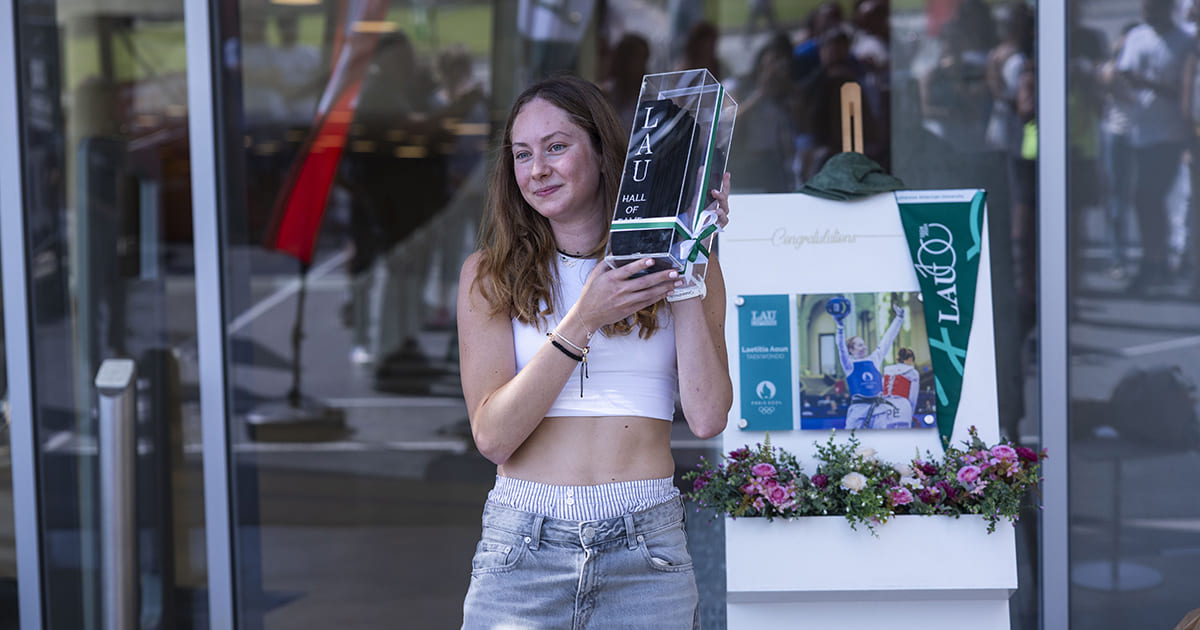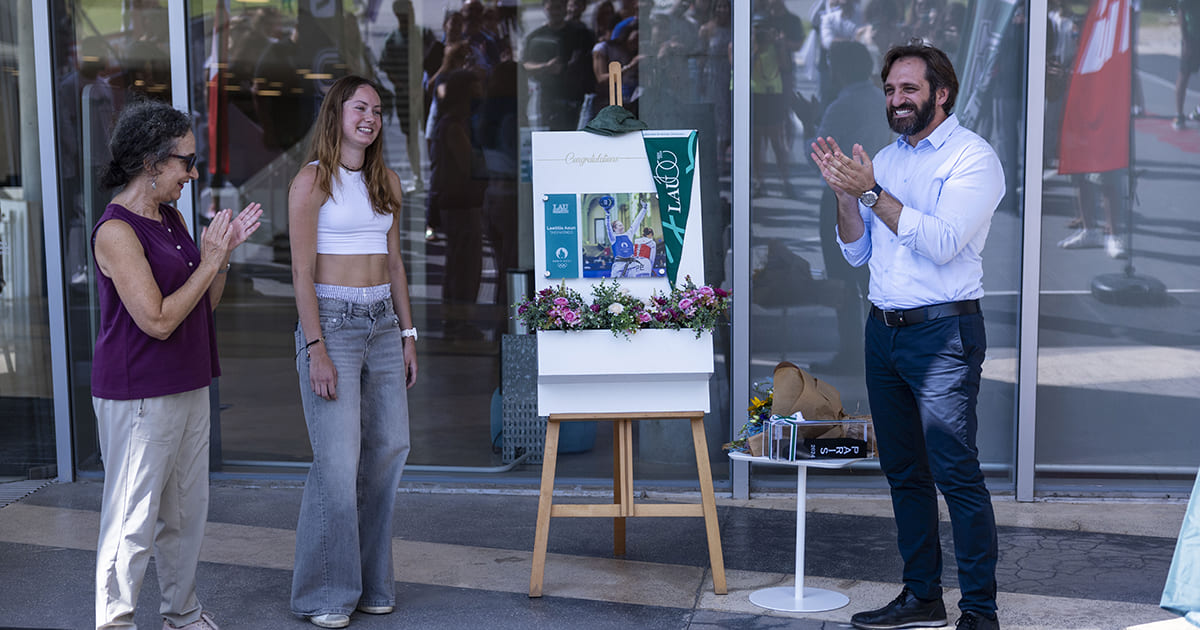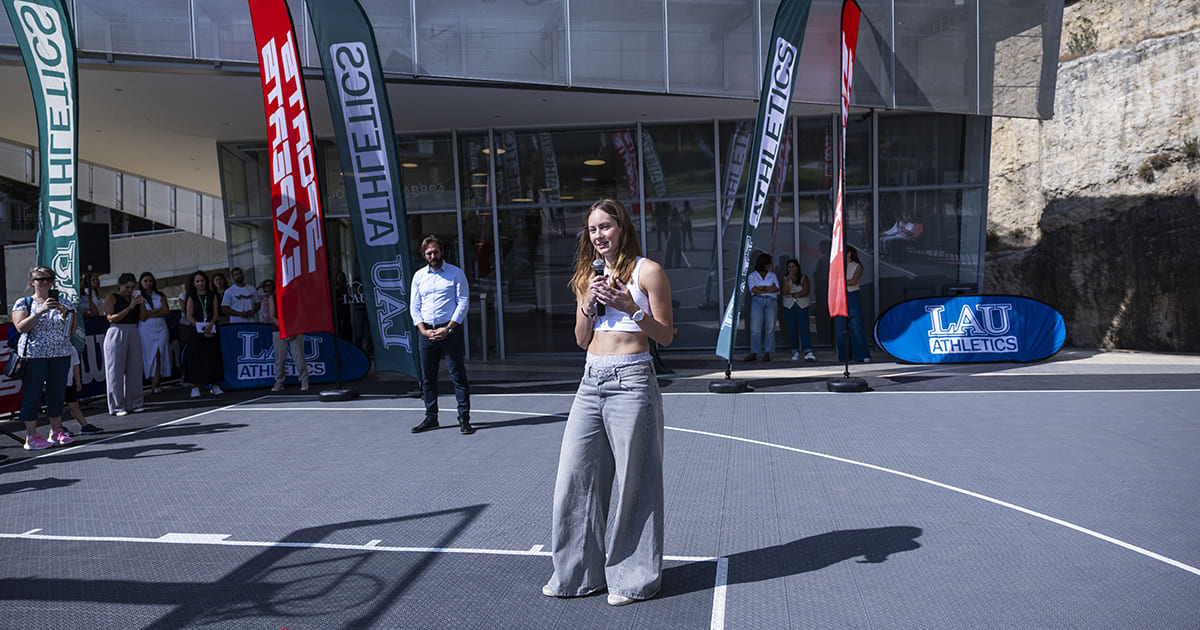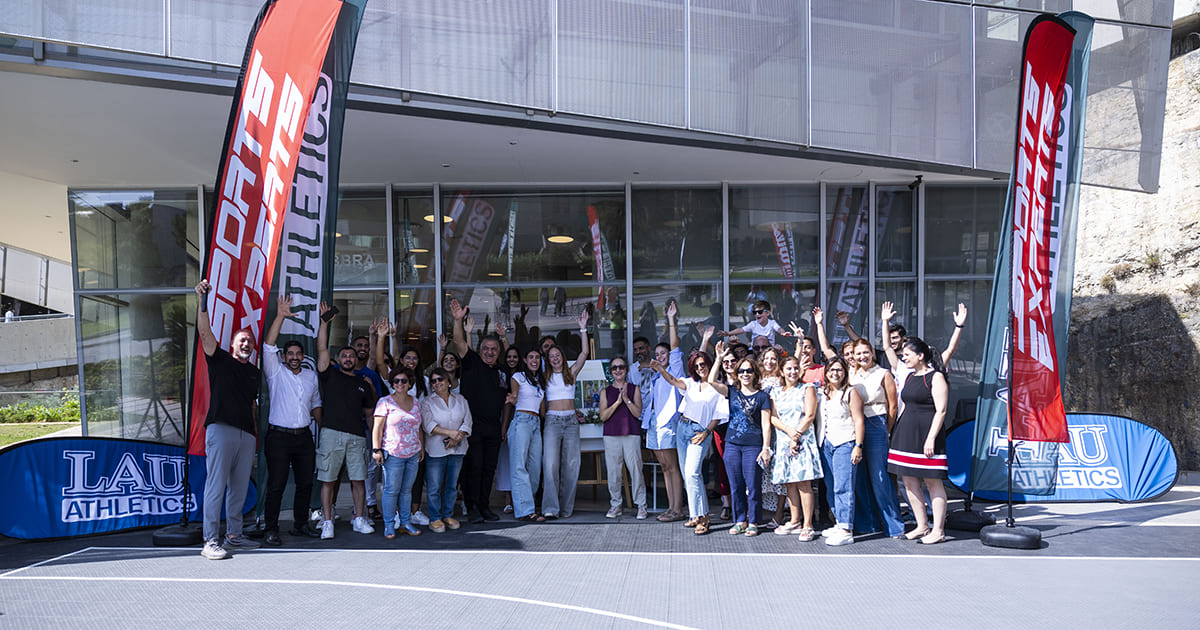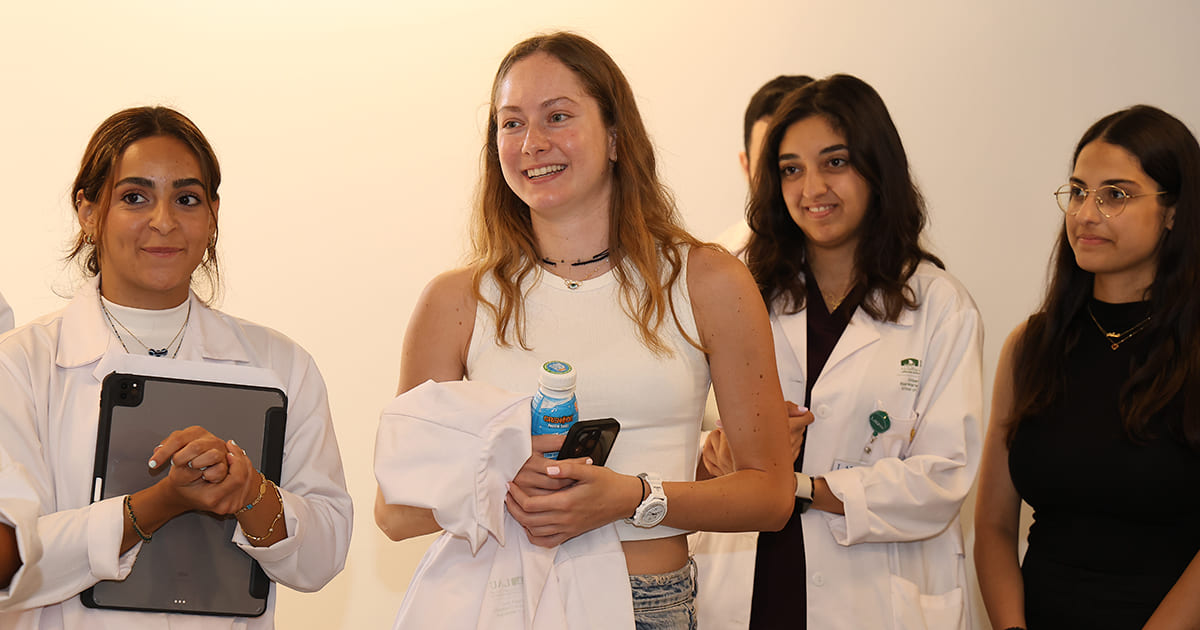Laetitia Aoun on Sporting the Dobok and White Coat
LAU student and Olympian candidly talks about how she balances her training for top-level Taekwondo competitions while pursuing her medical degree.
Realizing the Olympic dream is the ultimate goal for athletes worldwide, but achieving it entails strict training regimens, countless hours to refine technique and intense mental preparation to build resilience and focus, often forcing many to put everything else on hold in preparation for this pinnacle event.
For Laetitia Aoun, a third-year medical student at the LAU Gilbert and Rose-Marie Chagoury School of Medicine, competing at the Paris 2024 Olympics and securing fifth place worldwide in Taekwondo was a triumph achieved without sacrificing her academic ambitions. Her international success defied the notion that the rigorous requirements of medical school and the pursuit of athletic excellence cannot coexist.
In 2016, Aoun secured a bronze medal at the World Junior Championships in Vancouver, Canada. Two years later, in 2018, she ranked second in the world among juniors, signaling a promising future in Taekwondo. That same year, she went on to win bronze at the Asian Games in Jakarta, Indonesia. In 2021, she added another bronze to her record at the Islamic Solidarity Games in Konya, Turkey. As she transitioned to the senior level, Aoun continued to shine, earning three Arab champion titles in 2020, 2022, and 2024, and securing a ninth-place finish at the World Championships.
In this interview, she talks about her love for the game, why she chose to major in medicine and the preparations she undergoes before competitions.
What inspired you to take on Taekwondo, and how did you discover you wanted to pursue it professionally?
I started Taekwondo when I was nine years old. I used to do many sports like gymnastics, skiing, etc. I got my black belt in 2012; in 2013, I traveled for the first time to participate in a world championship. When I saw the magnitude of Taekwondo abroad, I was amazed by it.
My love for the game kept me going, even when I faced the pressure of choosing between it and my studies. People often said I’d have to prioritize my education over sports, but I learned that you don’t have to make that choice. I found a way to do both. If you truly want something, you’ll find a way to make it happen.
You’re studying to become a doctor— How did you decide to pursue such a demanding major while training as an athlete?
I have wanted to do medicine since I was a kid, but I got discouraged by people who told me that I couldn’t do both Taekwondo and medicine. So, when I first joined LAU, I chose pharmacy instead, thinking it would allow me to keep up with my sport. Pharmacy turned out to be very hard and took the same time and effort as medicine. The only difference between the two is an extra one or two years for medicine. So I switched majors. It took a lot of heart to do so because I risked not getting into medical school and, as a result, graduating late.
Now, I have to choose a specialty, which is stressful. We had a meeting for our Med IV orientation recently. I haven’t made a decision yet, but I have a clearer idea of what I wouldn’t want to do.
What does a typical day look like for you? And how do you manage your time?
Every day is different. I don’t plan my day a week before but a day before. It depends on my classes and my studies, and now, with the hospital rotations, it is a bit trickier. I usually train twice a day or at least try to train once for two and a half hours per day, six days a week. If I can, I add two hours of training in the morning at the gym, sometimes skipping some classes. Sometimes, I get into trouble for it; sometimes, I don’t, but I try to manage.
In the past five years at LAU, I have made four to six trips annually, depending on the number of competitions and injuries. People often ask how I find the time to study, and the truth is I fit it in between training sessions and while traveling. When a big competition is coming up, I focus more on training, but day to day, my studies are my priority.
Med II was the toughest year because of the material we had to cover. It is the first year before clinical rotations so that alone was very hard. Add to that the fact that I had broken my thumb. I thought my chances of qualifying for the Olympics were low. Also, at the beginning of my Med II, I went to China for ten days. When I came back, I had little time to prepare for my gastro module. But I did it and passed.
What preparations did you undergo before qualifying for the Paris 2024 Olympics this year?
In January, David Sicot, my current coach, invited me to a training camp to play against my number one rival, a student from Morocco who had ranked sixth in the world, to help her qualify for the Olympics. I had just removed my cast, and I wasn’t allowed to get kicked on my thumb because it hadn’t fully healed.
After my exams, I traveled to Fujairah for the Arab championship, and I won (I got the gold). For me, it was a comeback after my thumb injury. On my return, I took another exam and then left for a competition in Turkey, where I got the bronze medal. The first time in my life that I put Taekwondo before my studies was when I was preparing for the Olympic qualifiers. I went to China then for 15 days, where I trained with my former coach. When I came back, I had to study for a neurology exam.
The medical school administration helped me a lot. I wanted to stop studying for a year, but with their support, I managed. They pushed me to continue. Friends also helped me catch up on missed material, and the doctors were always willing to explain anything I didn’t fully understand.
What is the most challenging part of representing one’s country as an international player?
I don’t stress a lot. I love Taekwondo. I have been doing this my whole life, and for me, it is fun. I was actually looking forward to the day of the competition. I’ve traveled and played in eight competitions this year, and they were all much more stressful than this one.
But I did feel the pressure when people started cheering me on at the games, but in a good way because it motivated me. I just didn’t want to let them down and just needed to focus more.
When you get to the Olympics, you know you’ve made it, by your own efforts. Whether you win or lose, you succeeded in getting there. And that’s something. With the other competitions, it was different, because losing would’ve affected my qualifications for the Olympics.
What advice would you give aspiring athletes, especially young women?
Don’t let pursuing high-level education stop you from going after your dreams. Second, if you are an athlete, sports break your heart a lot, so don’t get discouraged. I did many times, but I was lucky to have a very strong support system from med school, my friends, coaches and parents. Not all of us have that, but you must believe in yourself. I was lucky that people believed in me before I did.
My coaches saw that I could make it to the Olympics before I did. Don’t let anyone tell you you can’t do this or that, and don’t let your studies or work stop you from pursuing sports. There is always time for everything if you manage it right.
Aoun was officially inducted into the University Athletics Hall of Fame at the Byblos campus on Friday, August 30, 2024, an event organized by the Office of the Dean of Students to commemorate her inspiring achievement.
